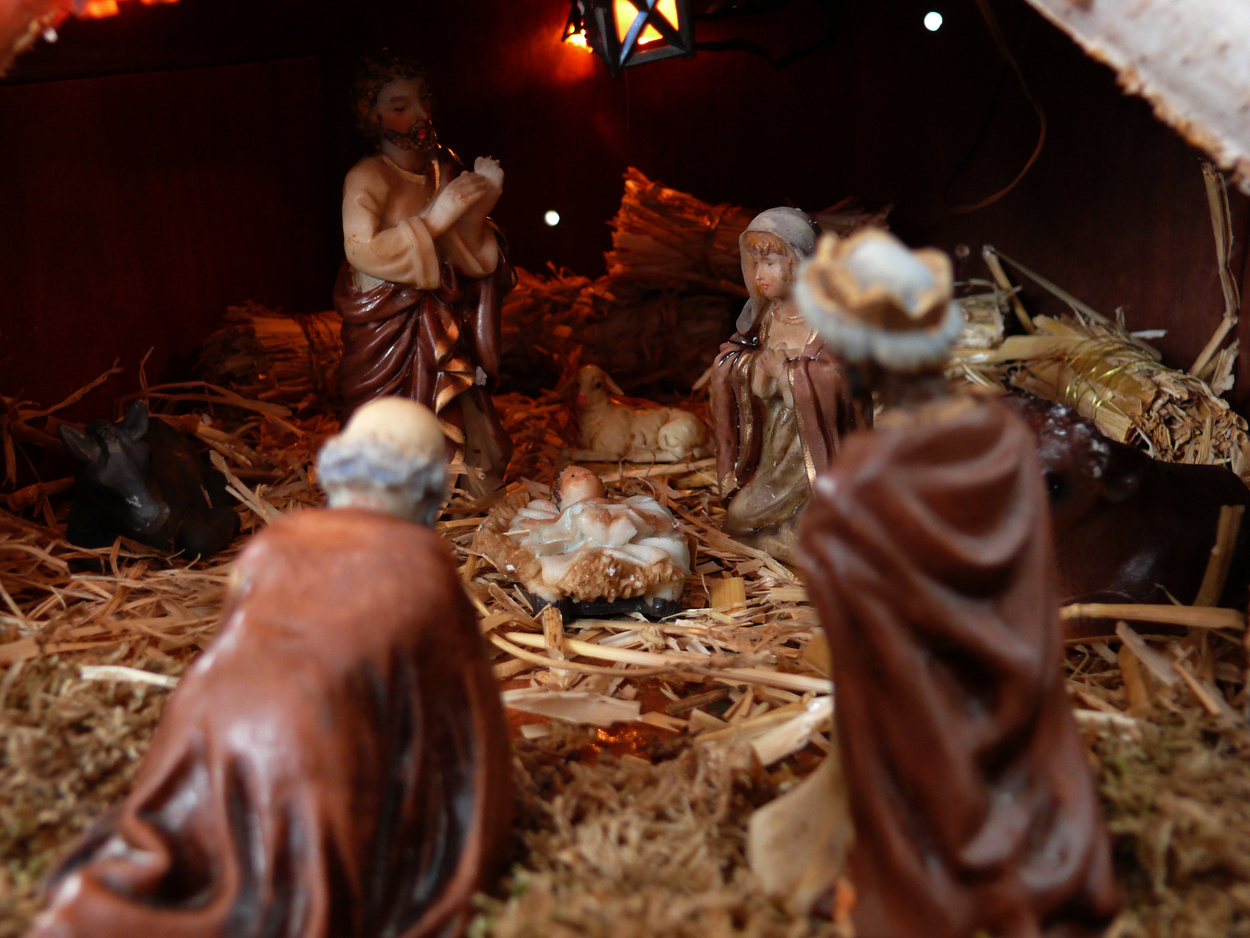
Is Christmas about peace and comfort?

"Glory to God in the highest, and on earth peace, good will toward men," Luke 2:14. Photo from Adobe Stock.
Is Christmas about peace and comfort?
Yes.
But perhaps not in the ways one might expect.
Many of us may think about peace as either inner peace or the entire absence of war. And we may think of comfort as something we seek for ourselves. Christmas Season promises none of those things.
Every Christmas Eve, we read the proclamation of the heavenly armies: “Glory to God in the heavens, and upon earth peace for people of favor” (Luke 2:14).
This proclamation is, in its form, a parody of proclamations by and about the emperor of Rome. So, this proclamation is about peace in the public realm, not personal or inner peace.
And the public form of peace here is not the "pax Romana," the vision of peace put forward by the Roman Empire. That peace was based on submission to Roman armies and Rome-appointed government officials.
What the heavenly armies announce is “peace for people of favor.” It is about a promise of Shalom—wholeness, healing and reconciliation— for all people God seeks to save.
That the announcement is to night-shift shepherds at work in the fields says a lot about who the favored people might be. They are those like the shepherds: people who were not favored in the world; people with no privilege and little if any status; people who were considered and both literally as well as sociologically positioned closer to animals than people.
The other stories we read in the ensuing days of Christmas Season, especially the martyrdom of Stephen on Dec. 26 and the slaughter of the innocents on Dec. 28, point to the reality that peace for those favored by God – those the world systems did not favor-- was then and continues now to be met by extraordinary violence, whether religiously or politically motivated, or both. Seeking to show favor to those unfavored by the powers that be was not, and is not, always taken kindly.
What about comfort? We think of “Comfort ye my people” from the Christmas version of Handel’s Messiah, or “tidings of comfort and joy” from “God Rest Ye, Merry Gentlemen,” and we may associate this with feelings of contentment after a Christmas feast or the feeling of being surrounded by warm blankets by a roaring fire on a chilly winter’s night. We may even think of “comfort food.”
The idea of “tidings of comfort and joy” comes from Isaiah 40, where God instructs a prophet to console a people who had lost everything and many of their loved ones when they were forcibly relocated across a desert a thousand miles from their homes and completely separated from their way of life. God’s word to that prophet, and to us, is not about God promising us comfort. It is rather a command to bring comfort to those from whom this world has taken it, to console the inconsolable. It is to connect ourselves to and with these people in all their losses and pain and walk with them to discover and remember the God who is saving them.
In some parts of our world, we in our churches are among those who need and are receiving this comfort. In many more, we are those called to offer it, even as we receive it.
So yes, Christmas is very much about peace and comfort.
The peace of Christmas Season is a sure and certain promise to those among us and those we have yet to connect with who have known anything but peace in their lives.
And the comfort of Christmas Season is a command to God’s people to offer comfort to all those the world abuses, ignores, or casts aside— not as acts of “drive-by charity,“ but through building lasting relationships that sustain and enrich life for all people. This is and is to be our enduring witness to the glory of the God who, in Jesus, has drawn near and shown us all the joy of salvation.
So may the peace and comfort of Christmas be with us and inspire us all.
Taylor W. Burton Edwards is the director of Ask The UMC. He previously served as director of worship resources with Discipleship Ministries (2005-2018).